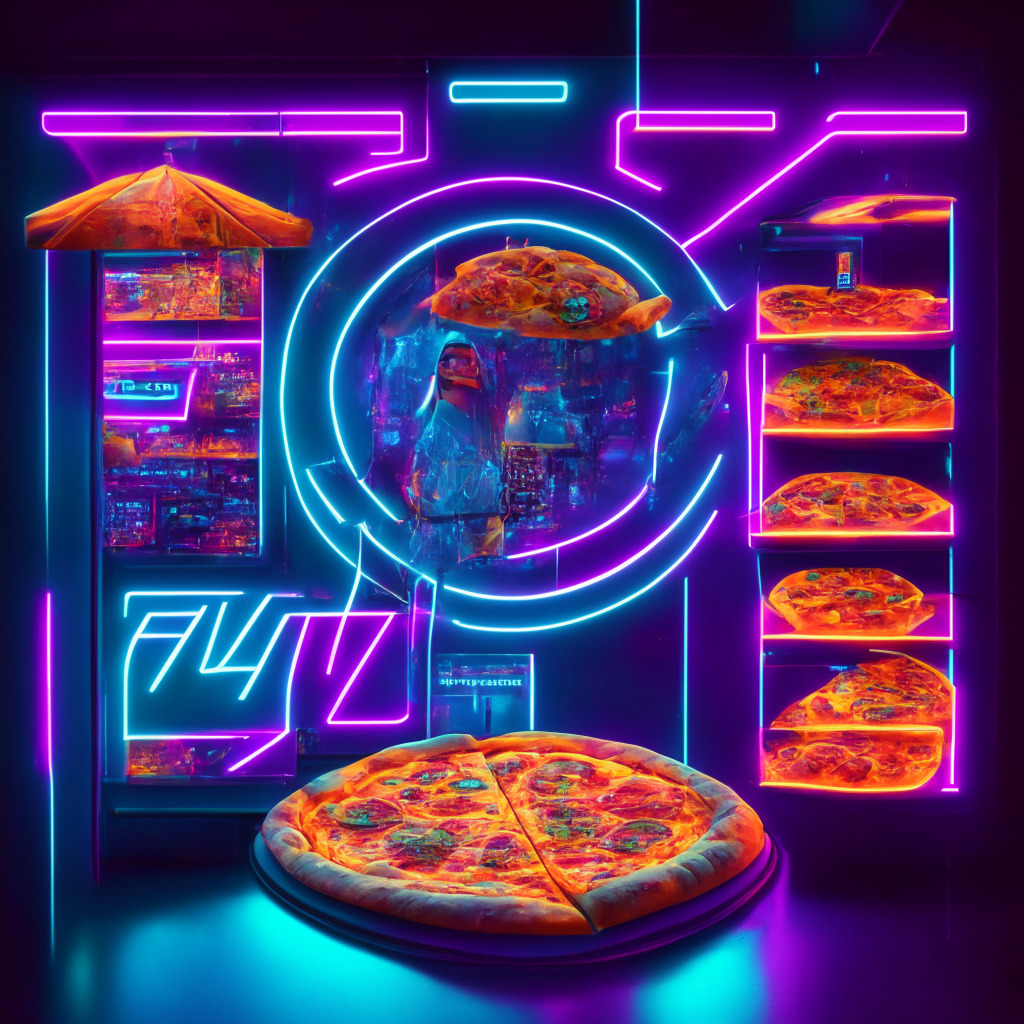As the world becomes more digitalized, sectors that we never thought would embrace technology have started adopting instruments like Nonfungible tokens (NFTs). One surprising industry is the food and beverage sector, with a recent report suggesting that the global food & beverage NFT market could reach a whopping USD 2,134.04 million by 2032. Magnates like Pizza Hut and Papa John’s are at the forefront of integrating NFTs into innovative marketing strategies.
NFTs are digital entities that find their authenticity verified on a blockchain network. Their value can fluctuate drastically due to the popularity and rarity of the item they represent, with some selling for millions. In the food industry, NFTs provide desirable transparency and traceability. Consumers, regulators, and retailers find it crucial to verify and track food’s origin, quality, and safety.
For example, Pizza Hut Canada launched an NFT collection representing unique pizza slice recipes. The tokens quickly became popular and sold out, a successful strategy to promote the brand’s pan pizzas and engage customers. On the other hand, Papa John’s dipped its toe into the NFT world with the “Hot Bags” collection, featuring handbag designs as a part of the promotion for their new merchandise line.
Despite the promising potential NFTs offer, the roadmap isn’t all rosy. The adoption of NFTs in the food and beverage industry faces unique challenges. The report cites the limited awareness among consumers and industry stakeholders about the benefits, and the technical complexities of adopting NFTs, especially for smaller producers, as significant obstacles.
As the blockchain technology advances and education increases, a future where you can buy collectible tokens representing your favorite food isn’t far from reality. Much like cryptocurrency, NFTs might be met with skepticism, but its potential for creating transparency in an ever-growing digital world is undeniable.
To conclude, whether NFTs can revolutionize traceability in the food industry will only be realized once the mentioned challenges are addressed and the stakeholders embrace the technology. Either way, it seems like a slice of the food and beverage industry’s future will significantly encompass NFTs.
Source: Cointelegraph




